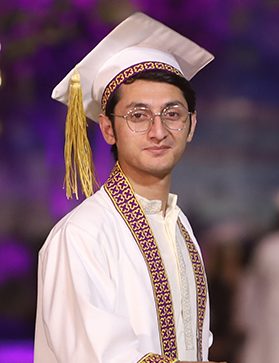
HABIB MAZAHIR
Aspiration Statement
I want to pursue my postgraduate studies in Religious Studies. Currently, I am thinking of applying in the Tourism and Hotel industry. Besides, I am also interested in the Development sector.
Core Skills
- MS Office
Experience
Leadership / Meta-curricular
- Habib University Member of Editorial Board for the following HU publications: Arzu Anthology (2nd Edition), HU Gazette, Tehzib, Purple Ink Review, Pride Press
- Araish-e-Khyaal (HU Literacy Club) - Secretary General
- Sareer-e-Khama, HU Literacy Club - Member of Central Organizing Team
- Meezan Youth Organization - President, Central Cabinet
- Meezan Educational Trust - Chairman, Education Committee
Internship / Volunteer Work
- The Citizen’s Foundation - Intern, Alumni Development Program
- Baltistan Culture and Development Foundation - Monitoring and Evaluation Intern
Final Year Project
Project Title
Gender, Sexuality and Class: The Class Privilege of Gender and Sexual Fluidity in Pakistan
Description
Variant and nonconforming genders and sexualities are taboo in Pakistan. The queer community has been alienated and their question has been neglected in Pakistan because of the religious and cultural stigma attached to it. But the increasing advocacy in support of the LGBTQ+ rights in Pakistan, more individuals are identifying their variant genders and sexualities and are ‘coming out’. However, gender and sexual fluidity seems to be a class privilege in Pakistan which the lower and middle classes don’t have. Studies show that the socioeconomic class status plays a pivotal role in the development, coming out, and social inclusion/exclusion processes of variant and nonconforming genders and sexualities (Saadon, 2015; Alipour, 2017; Haneef, 2011; Abbas et al., 2014). As such, this research study addresses the implications of socioeconomic status (SES) on the processes involved in the development, in coming out and in social inclusion of people with variant and nonconforming genders and sexualities in the context of Pakistan.